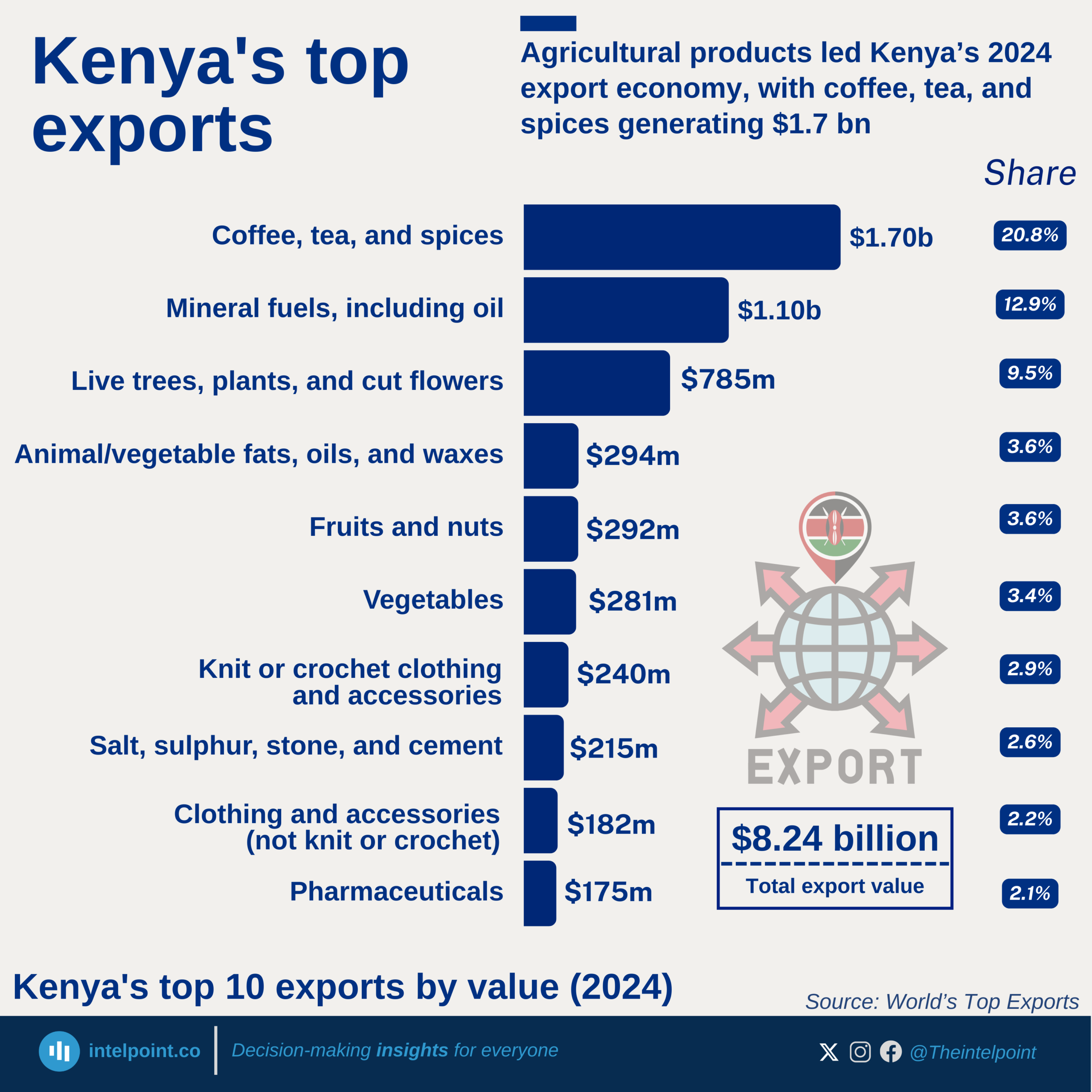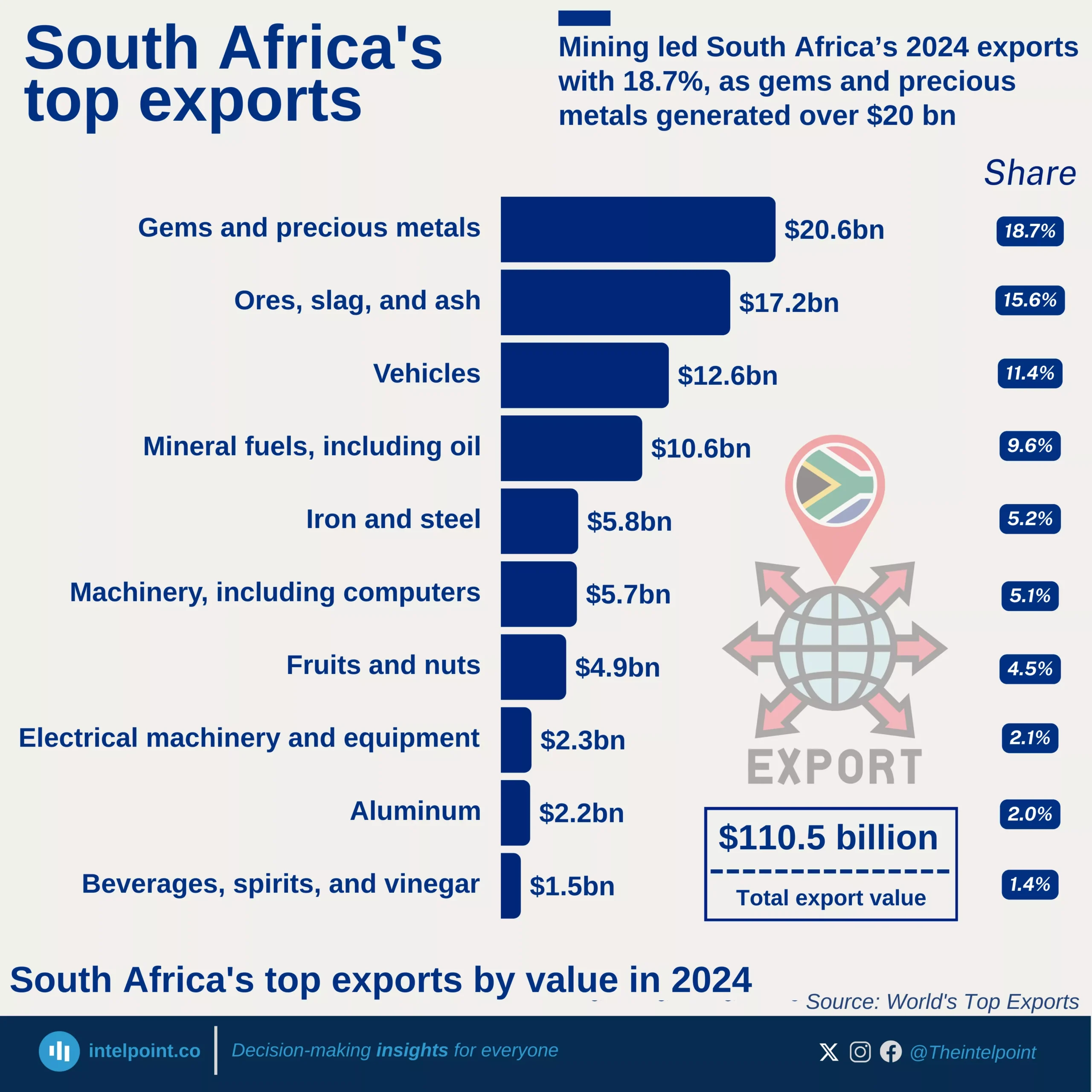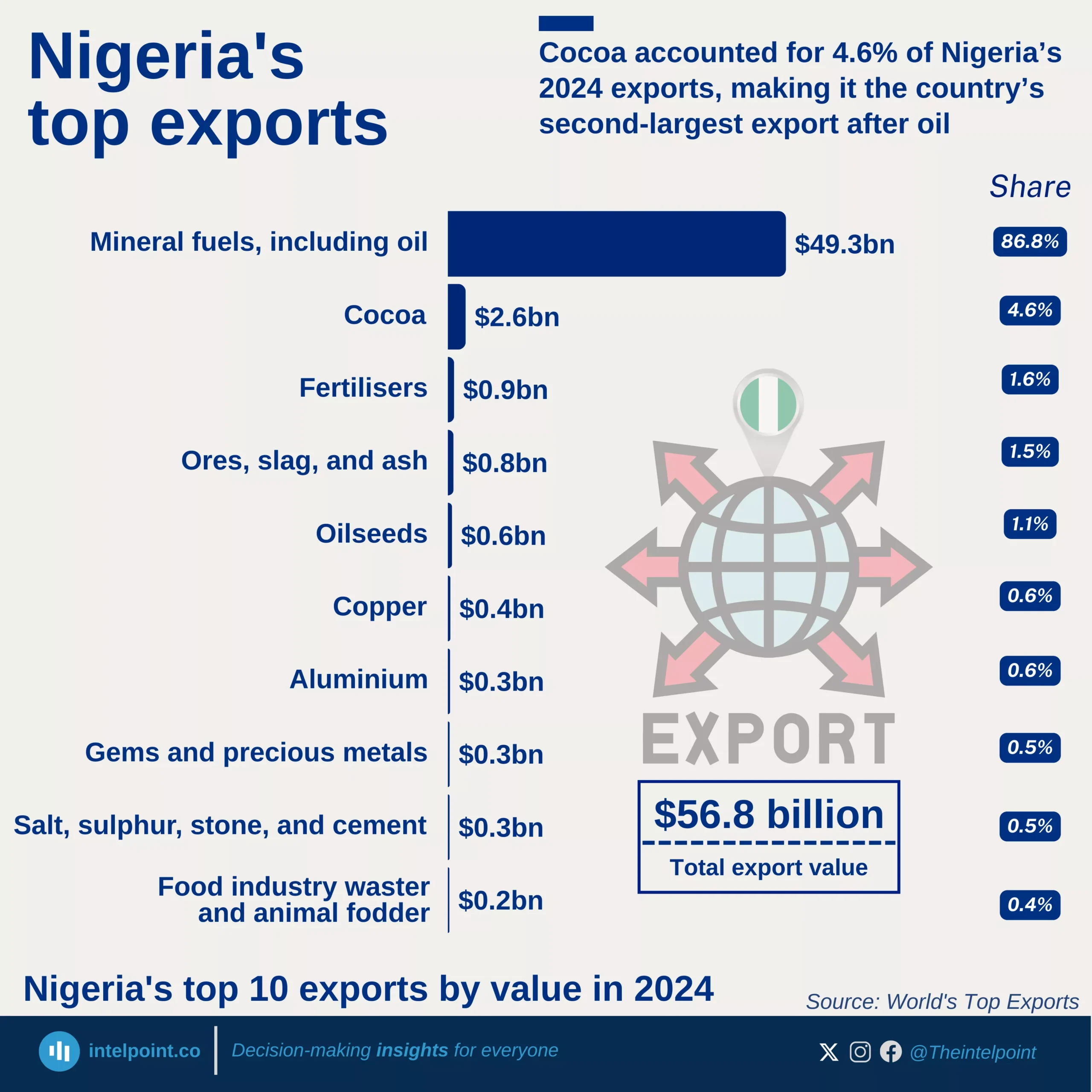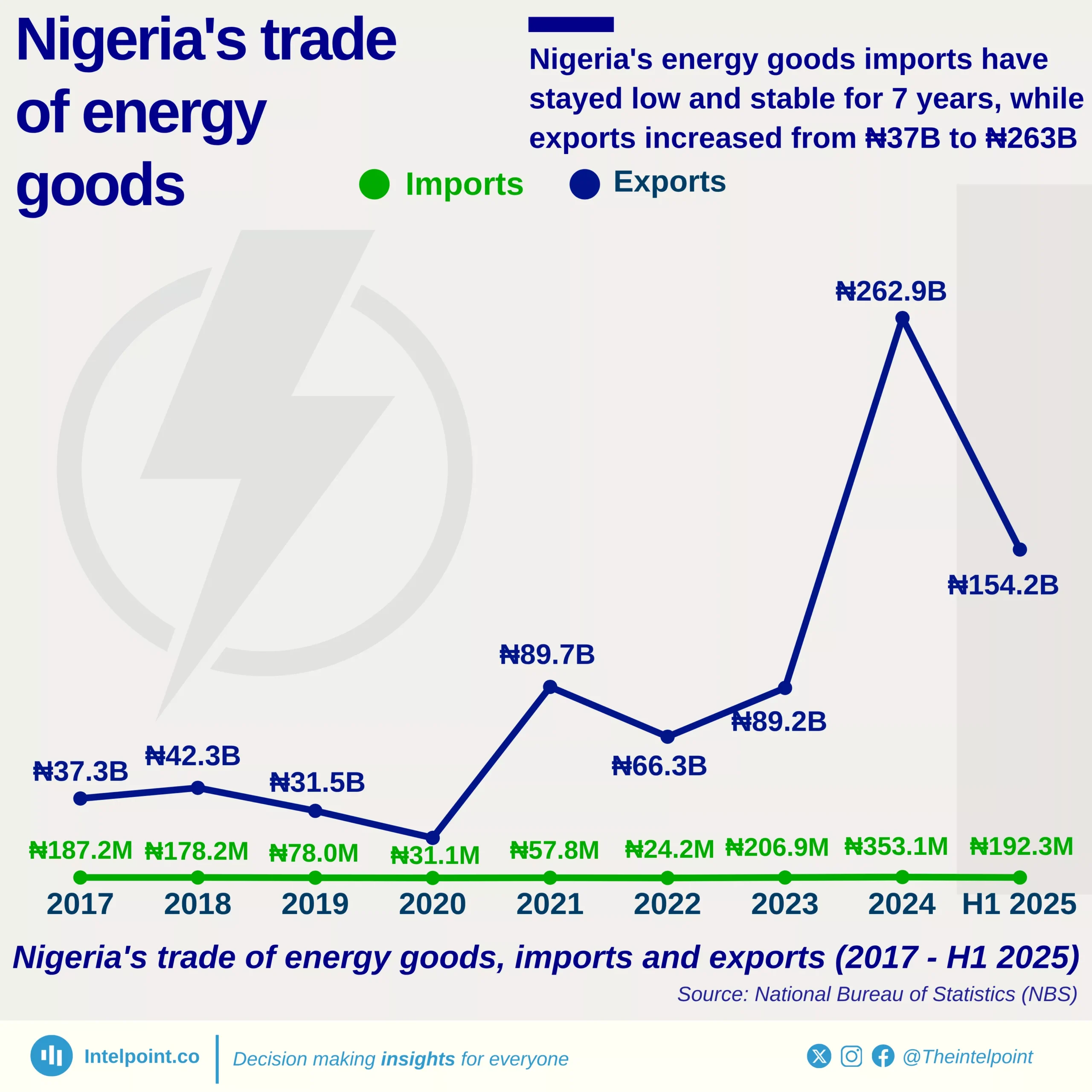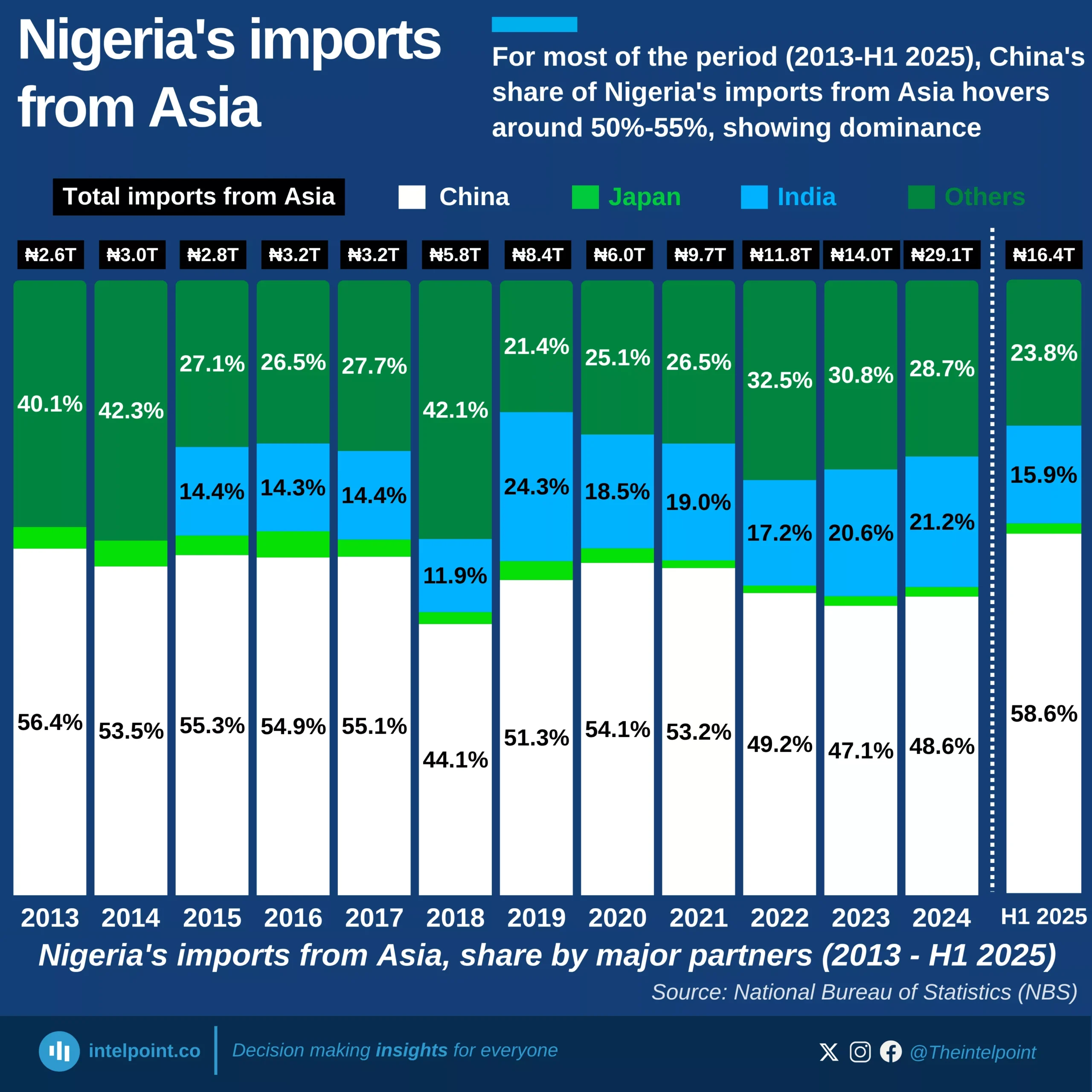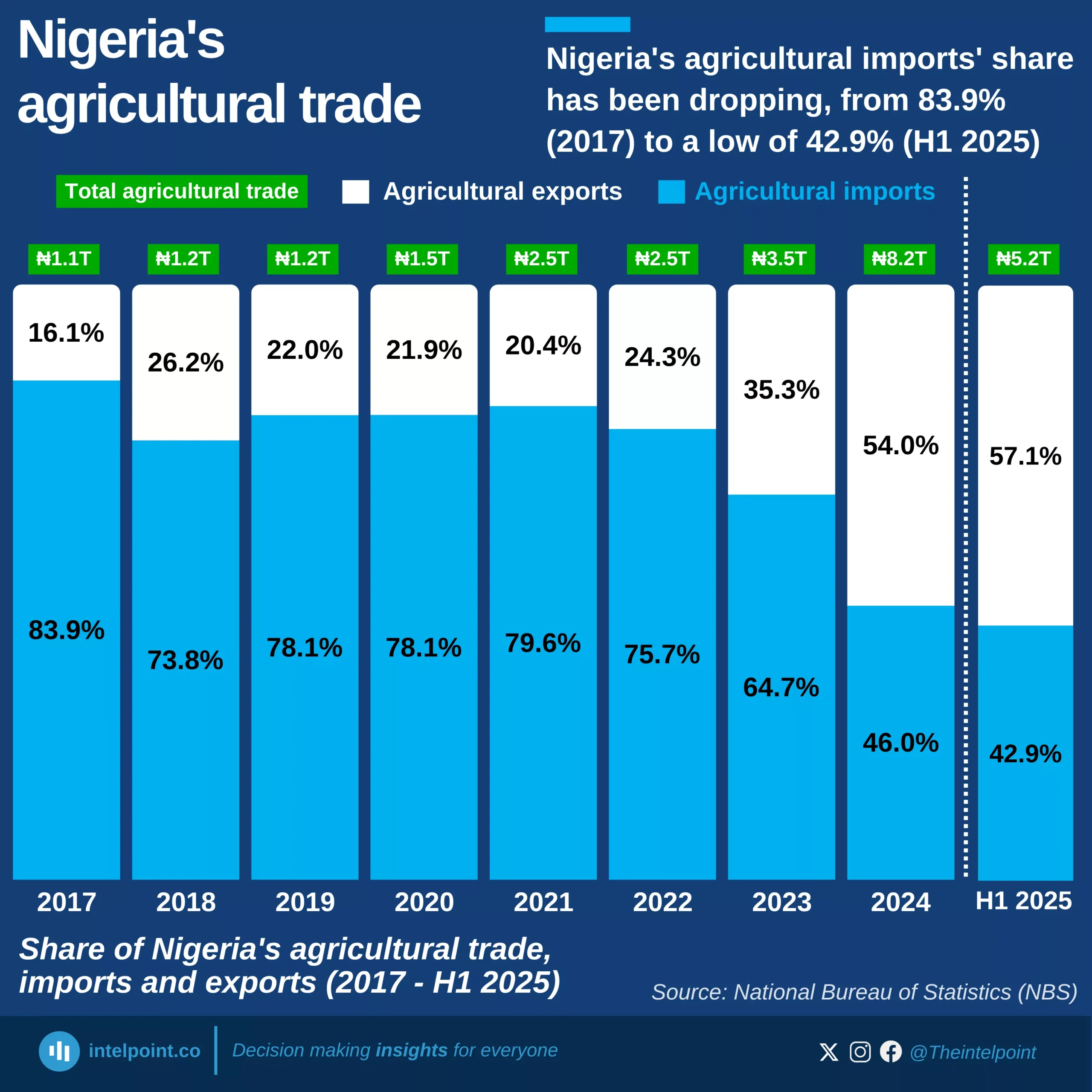Nigeria’s food and beverage imports have witnessed a significant rise over the past decade, growing from ₦0.7 trillion in 2013 to ₦6.6 trillion in 2024—an increase of nearly ₦6 trillion. This sharp growth highlights the country’s deepening reliance on imported consumables despite efforts to boost local production. The import value has surged in recent years, particularly between 2023 and 2024, when it jumped by an astounding 72% year-on-year, indicating intensifying demand pressures and possibly weaker domestic supply capacity.
